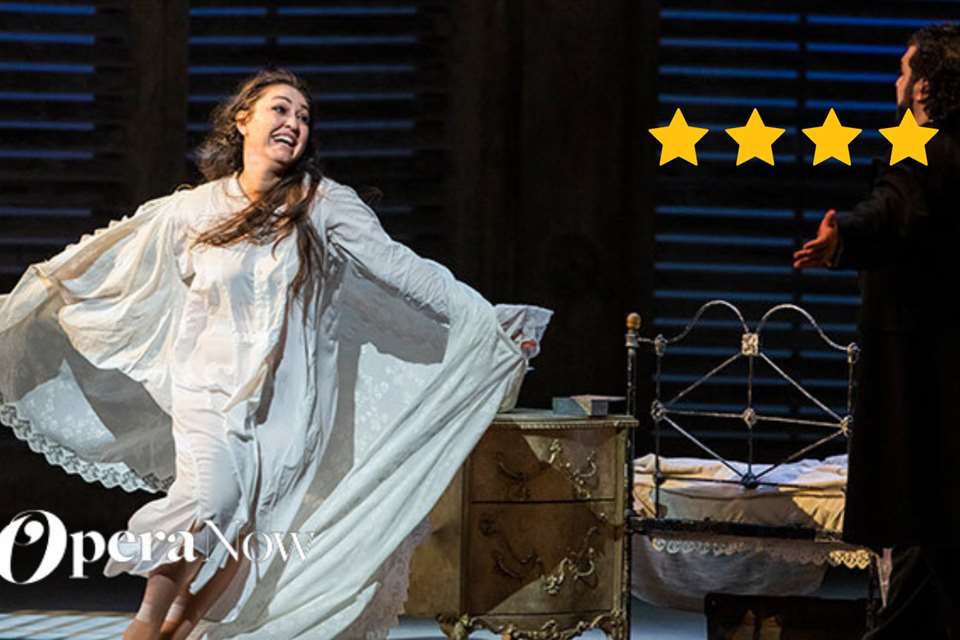Wagner: Tristan & Isolde at Grange Park Opera | Live Review
Lauren McQuistin
Thursday, July 20, 2023
A meaningfully staged production of Wagner's three act opera at Grange Park, conducted by Stephen Barlow
****

Brangäne (Christine Rice), Isolde (Rachel Nicholls) and Tristan (Gwyn Hughes Jones) | Photo: Marc Brenner
Grange Park’s relatively small size of theatre created a setting for their Tristan und Isolde where the audience could feel an intimate closeness to one of the greatest pillars of the operatic genre, and still experience the full scale and dramatic impact of the work.
Set designer and director Charlie Edwards created a fascinating world using images from the original set design, keeping the presence of the mythological aspects of the work and its history, alongside sumptuous Victorian pieces adding a sense of opulence on stage.
Rachel Nicholls presents an elemental Isolde - her entire body and voice was alive with fury and sensuality. She commanded the first act even in moments where she was not singing, and her voice was never compromised by her dynamic physicality and movement on stage. Gwyn Hughes Jones’ Tristan (debuting the role) was occasionally vocally overpowered by her in the first act, however balance was achieved in the second act resulting in exquisite sensitivity and raw power from both. Hughes Jones revealed his full artistry in the unrelenting third act. It was a stirring and robust delivery, where his voice never faltered for a single second.
The light design (Tim Mitchells) was extremely detailed, and used effectively to amplify the emotional currents throughout. It was a contributing factor to the forces that created poignant moments of believable love between two people ‘seeing’ one another truly, unexpected injections of humour and the necessary prolonged sense of yearning.

Kurwenal (David Stout) | Photo: Marc Brenner
Christine Rice walked her role due to illness, with Harriet Williams covering off-stage. Between them they produced a stalwart Brangäne, and the significant relationship between the women in the opera was not lost. The relationships were meaningfully staged and communicated, David Stout’s Kurwenal was not only impressively sung, his faithful devotion to Tristan - sometimes swaggering with bravado, sometimes innocent - was acted with conviction. Matthew Rose as King Marke was a vocal highlight, filling the role with gravitas and moments of humanity.
Conductor Stephen Barlow masterfully measured the tension and release of the score, thoroughly taking care of the lyricism in each line, treating phrases with due significance and ensuring the orchestra was collaborating with rather than overpowering the singers. Enough space was created for quiet moments of intensity as well as utilising the Gascoigne Orchestra’s full force.
The staging of the finale, with Tristan disappearing behind a set of doors after his death, which had previously opened to let light burst through, left the audience with the sense of Isolde’s loss as she throws herself against them after they had closed. This expression of powerlessness added significance to the Liesbestod, as an exploration of her agency, her journey and something greater than herself. Her transfiguration and transcendence wasn’t sung floating above the orchestra - it was delivered full-blooded and with a sense of triumph. Her bliss maintained the passion of her first act, and despite the destruction of the final act the audience is completely convinced of her peace.
The entire opera was fearlessly sung, lavishly staged and powerfully rendered.









